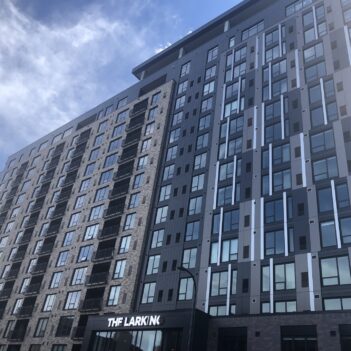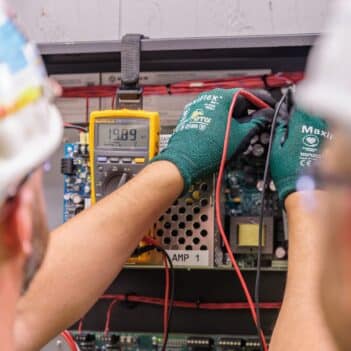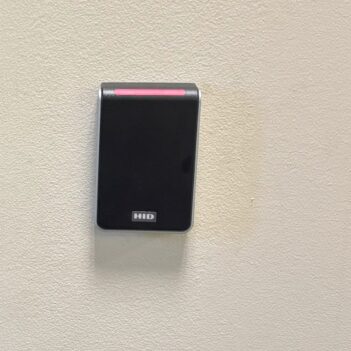News
What is the Difference Between Industrial and Commercial Electrical?
September 12, 2023
Electrical infrastructure demands tailor electrical systems to suit unique requirements. The two domains, industrial and commercial, each have a distinct set of challenges and necessities. While both rely on electricity to power their operations, understanding the differences between industrial and commercial electrical systems is essential for professionals working in the field. As your resource in the electrical industry, Egan Company is an expert in both industrial and commercial electrical in Minneapolis, Rochester, and beyond.
INDUSTRIAL ELECTRICAL SYSTEMS:
Industrial electrical systems in Minnesota are designed to cater to the complex demands of manufacturing plants, factories, and heavy industries. These settings typically involve large-scale machinery, equipment, and industrial processes that consume substantial amounts of power. Key features that differentiate industrial electrical systems:
- Power Capacity: Industrial electrical systems are engineered to handle high power loads. They require robust infrastructure, including high-voltage substations, transformers, and switchgear, capable of managing substantial electrical currents.
- Three-Phase Power: Industrial settings often employ three-phase power systems to distribute electricity efficiently. Three-phase power offers better performance for motor-driven equipment and provides a more balanced and stable power supply.
- Motor Control: Industrial electrical systems frequently involve motor control centers (MCCs) to manage the operation of motors and associated equipment. MCCs enable centralized control, protection, and monitoring of various motors across the facility.
- Hazardous Environments: Industrial environments may present hazardous conditions such as explosive atmospheres, high temperatures, or corrosive substances. Therefore, industrial electrical systems must comply with stringent safety regulations, employing specialized equipment like explosion-proof enclosures and intrinsically safe wiring.
COMMERCIAL ELECTRICAL SYSTEMS:
Commercial electrical systems in Minnesota, on the other hand, cater to non-industrial environments, including office buildings, retail spaces, educational institutions, and healthcare facilities. While these settings may not have the same power demands as industrial sectors, they have their own unique requirements. Characteristics of commercial electrical systems:
- Lighting and HVAC: Commercial spaces emphasize lighting and heating, ventilation, and air conditioning (HVAC) systems. These systems consume a significant portion of the energy load, and electrical infrastructure is designed to support their operation efficiently.
- Single-Phase Power: Unlike industrial settings, most commercial electrical systems utilize single-phase power distribution. Single-phase power is suitable for lighter loads and is commonly used for lighting, small appliances, and general office equipment.
- Outlets and Circuitry: Commercial spaces require ample electrical outlets to accommodate various electronic devices and equipment. Adequate circuitry planning is crucial to ensure proper distribution of power, prevent overloading, and maintain safety standards.
- Fire and Life Safety Systems: Commercial buildings incorporate fire alarm systems, emergency lighting, exit signs, and other life safety measures. These systems must be integrated into the electrical infrastructure to ensure the safety of occupants during emergencies.
Distinctions between industrial and commercial electrical systems is crucial for electrical engineers, contractors, and facility managers, as it enables them to design, install, and maintain electrical infrastructure tailored to the unique demands of each sector. At Egan, leading electricians have worked on thousands of electrical construction projects throughout the Twin Cities metro area, Rochester and Southern Minnesota, as well as Northern Minnesota. Whether your requirements entail low voltage solutions or solar engineering, procurement, and construction (EPC) services, we proudly stand as the preferred contractor for your needs.



